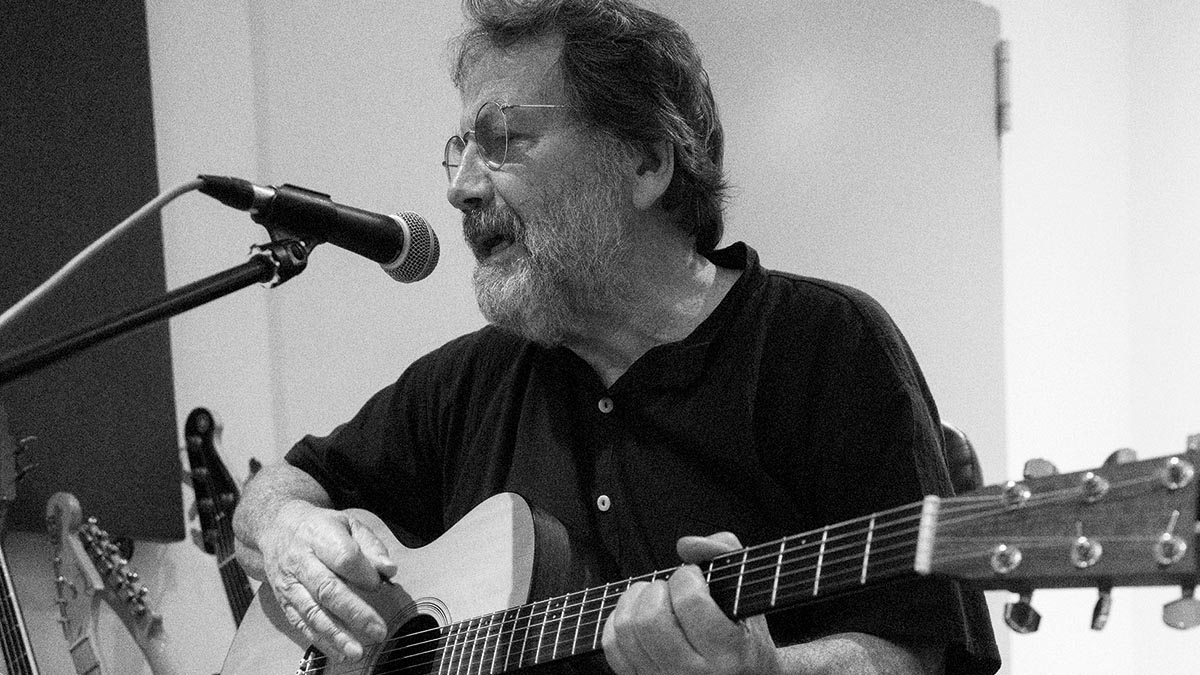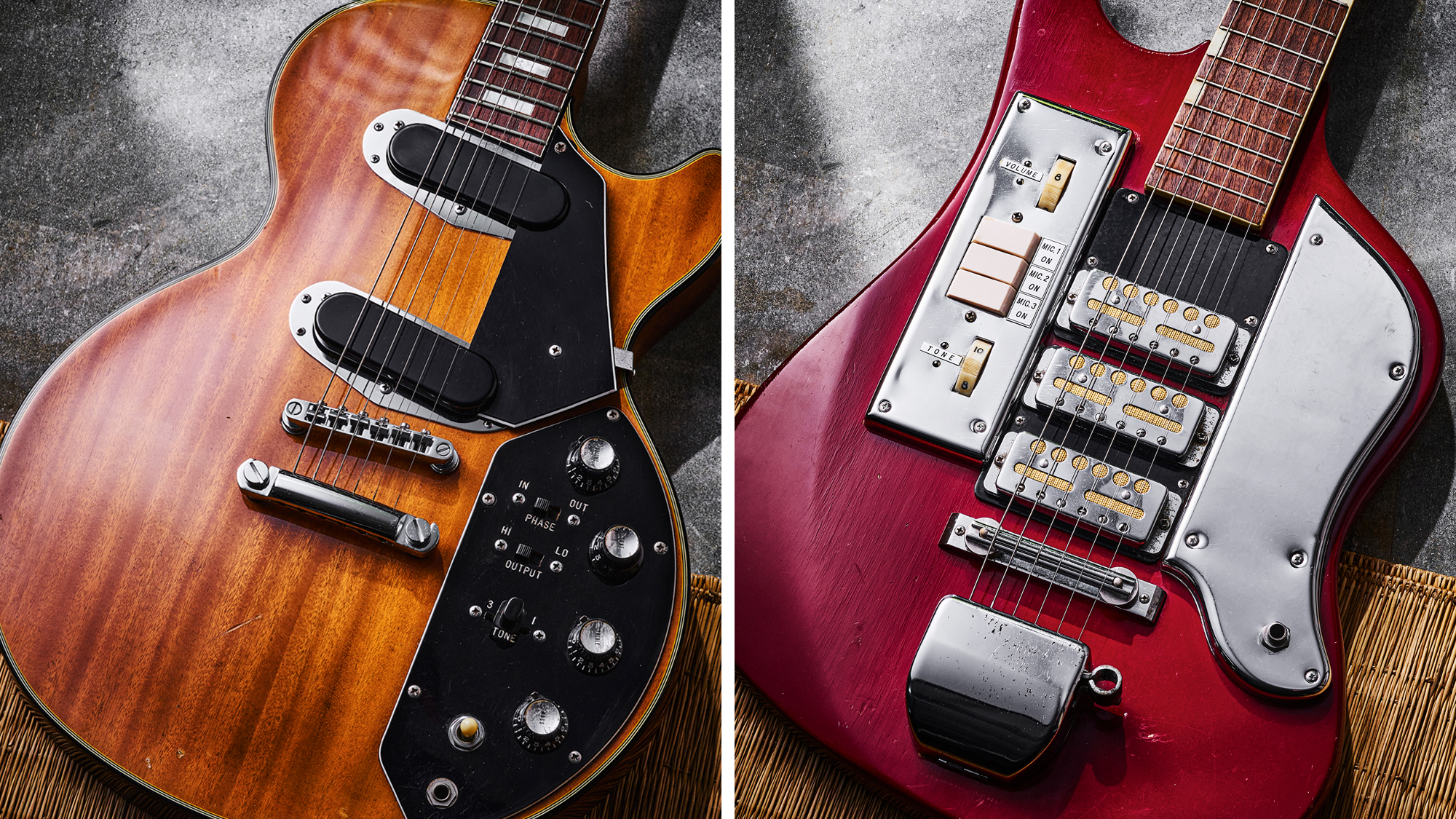Meet Tim Staffell, John Deacon's bass-playing predecessor in Smile, the band that became Queen
Staffell looks back on the days of forming an unconventional rhythm section with Roger Taylor and allowing Brian May's nascent talents to shine

Let’s get this out of the way: even 30 years after the death of their unique frontman Freddie Mercury, Queen are still huge, one of the biggest-selling bands in the world, despite falling in and out of fashion along the way. A quarter of the band’s success is due to the resident bassman, John Deacon, but before Deacon came onboard, the band went through several bassists before finding their man.
Wind the clock back to the first half of 1970, and half of Queen, guitarist Brian May and drummer Roger Taylor, were in a band called Smile. The bassist in that group was Tim Staffell, whose character was immortalized in the Bohemian Rhapsody movie of 2018. Staffell’s relationship with May stretches back even further, as the pair took their first musical steps together in a mid-'60s band called 1984.
With his third solo album due for imminent release, and with many a colorful tale to impart, we caught up with Staffell for the lowdown on his musical journey, asking him the inevitable question: could he have been the bassist in Queen?
“Queen produced some of the best popular music ever written, and the chemistry between the four of them led them to produce music that was inimitable,” he begins. “John’s bass playing was the perfect anchor for their songwriting – I would have been all over the place!
“I’m a riff player, which has to do with my writing. It’s the groove, and I need to emphasize the rhythm of the tune. I’m not a skilled player, but I’m a reasonably skilled thinker. The song has to have a defined rhythmic pulse before anything else, and that’s what I try to supply with a bass-line in a writing context.”
Raised in Isleworth, West London, Staffell first crossed paths with May at school in 1964 before forming the band 1984 and embarking on the further education courses where they met the pre-Mercury Freddie Bulsara.
“I listened to cosmopolitan mainstream pop in the late-'50s, the kind that was syndicated on radio stations – the likes of Del Shannon, Bobby Vee, the Shadows, some Elvis, and Chuck Berry, who was a complete game-changer,” he remembers. “In our band, 1984, I was the lead singer and harp player, although on rare occasions when Brian had to miss a gig, I stood in on electric guitar.
Get The Pick Newsletter
All the latest guitar news, interviews, lessons, reviews, deals and more, direct to your inbox!
“When we first mooted the notion of Smile, it was a given that I would play bass – but it wasn’t that I showed any particular aptitude for the instrument. As a trio, it was possible to think outside the box and play around with the musical dynamic. Roger and I weren’t a conventional rhythm section per se: We created a fairly unique platform for Brian’s guitar and our harmonies to float on.”
Roger and I weren’t a conventional rhythm section per se: we created a fairly unique platform for Brian’s guitar and our harmonies to float on
Equipment was limited back in the '60s, so getting 1984 and Smile amplified was a challenge, to say the least.
“Dave Dilloway was the bass player in 1984, and he knew electronics: I think he dabbled with ‘kit’ amps and built his own bass cabinets,” says Staffell. “He played a Hofner Artist bass and we had a few electronically adept friends who donated amps, while our PA was a homebuilt monster. Equipment was based on affordability and availability.
“The transition to college changed all of that; in those days, local government would give the student a grant to attend college, and if you were suitably frugal, you could just about stretch to a guitar and an amp alongside college expenses.
“My first bass guitar was a Vox P, perhaps a Symphonic model. It was okay, not a patch on a Fender, and actually the wrong kind of sound for Smile. I traded it for a Gibson EB-O which was dirtier and more growly. Later, I added a Danelectro Longhorn six-string, which these days would be called a baritone guitar, but I was using it as a six-string bass. For a long time, I played through a weird Selmer 18” speaker.”
The bassist’s role with Smile presented the challenge of singing lead vocals while playing a bass rhythm that crossed the rhythm of the vocal.
“If more live recordings from Smile had survived, you’d realize that I wasn’t very good at it,” says Staffell. “My limitations were probably what helped to define Smile’s individuality. I must have played April Lady [later released by Queen] live, and presumably I was able to manage the 5/4 signature competently enough – but I certainly wasn’t adept.”
1984 and Smile both supported some of the biggest names in music – Staffell looks back on those years with understandable fondness. “Both 1984 and Smile supported Jimi Hendrix, but the Smile show at Imperial College was a lot more intimate. I don’t recall the gig very well: We shared a dressing room, he asked me the way to the stage, that’s about it!
“But after 18 months of Smile, and supporting the likes of Yes, T-Rex and Free, I was getting dissatisfied, partly because I was falling out of love with heavy rock, and partly because I was networking with people who were great improvisers, jazzers, country pickers, and ethnic musicians, and I was developing a real sense of inadequacy with my own efforts. The catalyst for it was that I also wanted to write, and not the kind of material which would have suited Smile.”
Smile subsequently broke up in 1970. What happened next is now the stuff of music legend, with May and Taylor forming Queen with Staffell’s flatmate Bulsara.
“After Smile, I recorded two albums with a band called Morgan along with Jonathan Kelly’s Outside, Richard Lightman, and Tailfeather,” says Staffell.
“I always had a gig lined up somewhere or another. I was always writing and either doing a solo gig with a guitar, or maybe sitting in on bass with a scratch band or two. I didn’t have any real determination to push it any further, and I couldn’t stand the prospect of touring, but across the years, I had sporadic contact with Brian and Roger, although I didn’t see Freddie at all.”
As a bassist, Staffell’s playing has spanned the decades, and he’s seen a lot of bass trends come and go.
“Early on, I decided that a bass needed to have five strings; for me, it liberates the bottom E from a four-string,” he explains. “I had a lovely Curbow fretless for a while, and then a Steinberger which I dug because it growled. I’ve just sold a five-string Jazz, and at the moment, I’ve just got an Ibanez short-scale five-string that I use for recording at home. I also have a little Fender Rumble combo.”
I’ve always been at some pains to make sure I’m not gratuitously capitalizing on what might be more of a tenuous connection than I realize
He adds: “Since lockdown, I’ve produced my third solo album. I’m trying to write interestingly structured songs and record them according to the stylistic precedent I’ve already created. I’ve absorbed so much music in my life, but I worship Steely Dan. They are, to me, the gods of songwriting.”
Staffell originally co-wrote Doing All Right with May, so for its use in the Bohemian Rhapsody movie, he was asked to re-record his bass part and vocal performance for the film’s soundtrack. Not only is his character in the film, but he’s also present in this current instalment of the Queen story. When asked if he’s proud of the work he did in laying the seeds for what would eventually progress into the formation of Queen, his reply is reverential.
“I’m pretty flattered that that is how I’m viewed by the fanbase. I’ve always been at some pains to make sure I’m not gratuitously capitalizing on what might be more of a tenuous connection than I realize – but if that’s the prevailing mythology, I’ll take it with pleasure, and much gratitude.”
“I asked him to get me four bass strings because I only had a $29 guitar from Sears”: Bootsy Collins is one of the all-time bass greats, but he started out on guitar. Here’s the sole reason why he switched
“I got that bass for $50 off this coke dealer. I don’t know what Jaco did to it, but he totally messed up the insides!” How Cro-Mags’ Harley Flanagan went from buying a Jaco Pastorius bass on the street to fronting one of hardcore’s most influential bands










